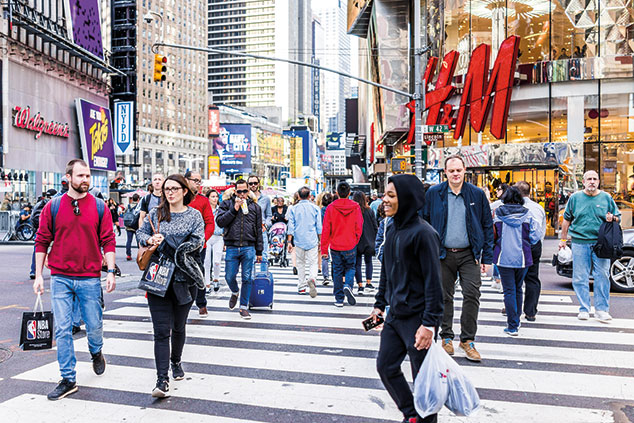
In 2017 the world economy “broke out of a rut”, says The Economist. It finally shook off its post-crisis hangover, expanding by 3.8%, the fastest pace since 2011. Business investment took off again and global trade growth reached 4.9%, also an eight-year high. But in the past few weeks “the glow has begun to fade”. The recovery that the International Monetary Fund heralded in April as “broader and stronger” seems to have become narrower and weaker.
Growth dipped in all major economies in the first quarter, even slipping below zero in Japan. A widely watched survey of manufacturing, JP Morgan’s global PMI index, fell to a six-month low in March.
World trade, moreover, “has softened significantly” in recent months, says Capital Economics. Growth in air-freight traffic has been slipping since the middle of 2017. Export volumes from emerging and advanced economies declined in March. And all this against a backdrop of ongoing tension over trade between China and the US.
Europe is the weakest link
Last year investors in Europe fretted about political problems that failed to materialise and were surprised by economic growth they hadn’t expected, says Richard Barley in The Wall Street Journal. “This year is starting to look like the opposite of that happy picture.” The eurozone’s GDP expanded by just 0.4% between January and March, down from 0.7% in the previous three quarters. German growth halved.
An index tracking the extent to which economic data exceeds expectations “is languishing deep in negative territory”; there have, in short, been few upside surprises of late. The latest crisis in Italy will hamper activity there, while previous euro dramas have had a knock-on effect on confidence across the bloc.
For now, however, none of this amounts to anything beyond a slight slowdown in the pace of global growth. As The Economist points out, surveys of economic activity in Europe, China and the US are, collectively, higher than they have been 83% of the time over the past ten years. The poor weather seems to have played a part in reducing European growth in the first quarter of 2018. As for the world’s biggest economy, “strong retail sales and high consumer confidence suggest that if a downturn is coming, Americans have missed the memo”.
A trade war, meanwhile, remains a danger, but bear in mind that US presidents always like to approach mid-term elections with low unemployment and rising stock prices, says Karen Ward in the Financial Times. Markets shudder when there is bad news on this front. “It may soon be in President Donald Trump’s political interests to dial it down.” All told, the “cracks in the global growth story do not look fatal for equities”.